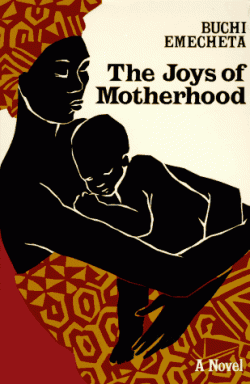 At 13, my days were divided between time away at a girls boarding school in Onitsha and holidays at home in Ibadan, Nigeria. I remember the year as an awkward one. We (my friends and I) were dealing with the physical and emotional rollercoaster of puberty while armed with the newly found knowledge that “boys disease”, the plague which made us scream when a boy touched us, was a myth perpetuated by our mothers. In reality, it would take much more than a simple touch from a boy to get pregnant.
At 13, my days were divided between time away at a girls boarding school in Onitsha and holidays at home in Ibadan, Nigeria. I remember the year as an awkward one. We (my friends and I) were dealing with the physical and emotional rollercoaster of puberty while armed with the newly found knowledge that “boys disease”, the plague which made us scream when a boy touched us, was a myth perpetuated by our mothers. In reality, it would take much more than a simple touch from a boy to get pregnant.
Curiosity led us to romance novels-Harlequin/Mills & Boon novels-bought from roadside booksellers, wrapped with old newspaper and smuggled into bedrooms, so our innocent mothers were spared the sight of steamy book covers. I remember a particular author, who had a habit of saving the only kiss in the book for the very last page. We were not impressed with her writing.
I no longer remember how I got a copy of The Joys of Motherhood by Buchi Emecheta. With the title and cover image of a woman carrying a child, I didn’t have to hide the book. However, if my mother had known a female character, Ona, was brazen enough to have sex with a man, in his home, while his neglected wives listened to their loud noises, the book would have been banned for sure.
I didn’t find the book interesting just because of Ona’s brazenness. I did because I was surprised that the idea only marriage and motherhood defined and fulfilled a woman, had not changed from Nnu Ego’s time to mine. And in the passive-aggressive way of fighting expectations most teenagers have perfected down to a fine art, I often declared within my mother’s hearing, that I was never getting married or having children, knowing it would make her blood boil. Her terse response was always, “we shall see.”
Set during the 1930’s through 1950’s, the novel tells the story of two Nigerian women, Ona and Nnu Ego, the child Ona bore her married lover. Nnu Ego’s greatest desire was to have a child and she eventually had lots of them. It was a case of be careful what you wish for because they didn’t bring her much joy. Nor, did she get the love and respect of her husband. In an agonizing moment, Nnu Ego cried aloud, “God, when will you create a woman who will be fulfilled in herself, a full human being, not anybody’s appendage?”
Yet of her daughters, who despite their academic aptitude remained uneducated at the expense of sending prized sons to school, Nnu Ego said with conviction, “The most important thing is for them to get good husbands.”
I’ll admit to feeling some satisfaction (the pity did come later) when those sons left home and never looked back and those less-valued daughters were the ones she had to rely on.
The tragedy of it was that at the end, Nnu Ego died alone on a village path. No husband. No children. They were all far-away, busy with personal agendas. And whether or not I agreed with the choices she made, it was clear from comments Nnu Ego made in her later years that she did find some joy in her life. I’ve often thought that if she had been consulted on her headstone epitaph, she would have said, “I did all I could’, just like most of us try to do.
Author Bio:
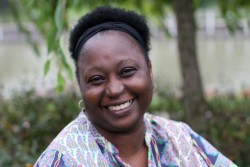 Born in Ibadan, Nigeria, Yejide Kilanko is a writer of poetry, fiction and a therapist in children’s mental health. She currently lives in Ontario, Canada. Yejide’s debut novel, Daughters Who Walk This Path, was published by Penguin Canada, April 2012 and Pintail Books (Penguin USA) January 2013. The novel has been translated into German and Thai. In 2012 she was named one of the top five hottest up-and-comers on the Canadian writing scene by the Globe and Mail. Her next novel is forthcoming from Penguin Canada, May 2014. Please visit www.yejidekilanko.com
Born in Ibadan, Nigeria, Yejide Kilanko is a writer of poetry, fiction and a therapist in children’s mental health. She currently lives in Ontario, Canada. Yejide’s debut novel, Daughters Who Walk This Path, was published by Penguin Canada, April 2012 and Pintail Books (Penguin USA) January 2013. The novel has been translated into German and Thai. In 2012 she was named one of the top five hottest up-and-comers on the Canadian writing scene by the Globe and Mail. Her next novel is forthcoming from Penguin Canada, May 2014. Please visit www.yejidekilanko.com


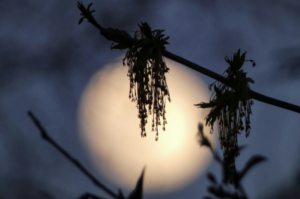
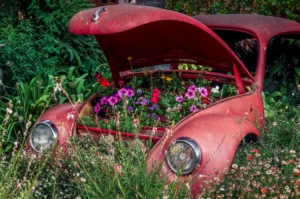
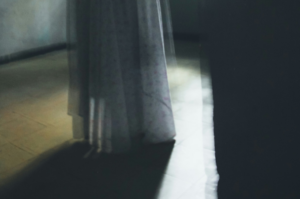

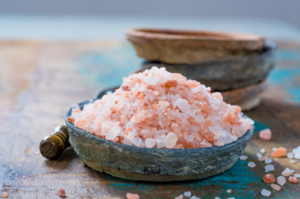


The Week on Sunday (weekly) December 15, 2013 11:31
[…] Chasing Elusive Joy: The Trials and Tribulations of Good Women by Yejide Kilanko | Brittle Paper […]